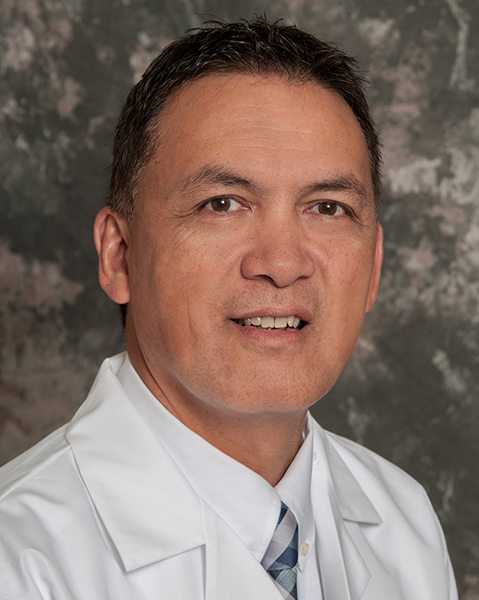
Do You Need a Knee Replacement?
Knee Replacement Surgery
As we age, the cartilage that cushions our bones can wear away, resulting in pain and discomfort from the bone on bone contact. The cartilage can also be injured in an accident. The resulting pain can make simple activities like walking and climbing stairs unbearable. With a partial knee replacement or total knee replacement surgery, the worn-out surfaces of your knee are resurfaced using specially designed metal and plastic components. The result is a reduction in pain that makes movement easier and allows you to get back to the things you love.
Knee replacement surgery is a common treatment to alleviate knee pain; in fact, it is one of the most frequently performed orthopedic procedures due to its high success rate. Knee replacement surgery helps in alleviating knee pain from arthritis and ultimately improves mobility. The average age of the patient having knee replacement surgery is going down. That’s partially because the prosthetic joints are lasting longer than ever—15 to 20 years—meaning patients can have their knee replaced and not have to worry about their new knee wearing out.
Penn Highlands Healthcare is the first health system in Northwest Central Pennsylvania to offer Mako SmartRoboticTM joint replacement surgery by specially trained orthopedic surgeons. You can have your joint replaced by one of our highly trained surgeons using the Mako Robot at Penn Highlands Clearfield or Penn Highlands DuBois.
Mako SmartRoboticTM at Penn Highlands Healthcare is an innovative surgical solution for many people suffering from painful arthritis or degeneration of the knee or hip. The Mako robot uses 3D CT-based planning software so your orthopedic surgeon can know more, and cut less. That is, the CT-scan helps your Penn Highlands orthopedic surgeon understand more about your unique anatomy to create a joint replacement surgical plan that is extraordinarily advanced in precision and customization to your body.
Who is a Candidate for Knee Replacement Surgery?
If you have severe knee pain or instability that limits your activities of daily living, knee replacement surgery may be your best option. It is only recommended after careful examination, imaging, and diagnosis of your particular joint problem, and only after more conservative measures such as exercise, physical therapy, and medications have proven ineffective. While artificial knee joints have been developed to last longer than they did in the past, it is still a good idea to wait to have knee replacement surgery until it is impacting your life. On the other hand, you shouldn’t wait too long as the resulting limitation in movement can impact your recovery. The time for knee replacement surgery is unique to every individual and your orthopedic surgeon will help you determine the optimal time for you.
Is the Mako SmartRoboticsTM an Option for my Knee Replacement?
Your orthopedic surgeon at Penn Highlands Healthcare can help you determine whether Mako SmartRobotic surgery is right for your knee replacement surgery.
Many knee replacement patients may be a candidate to have their surgery completed by their orthopedic surgeon using the Mako Robotic Arm. The result of a procedure performed with Mako SmartRobotics can differ from traditional joint replacement surgery with fewer soft tissue releases and smaller incisions, less blood loss, protection of healthy bone, and ultimately optimal joint alignment and faster recovery.
Find a Penn Highlands orthopedic surgeon who specializes in using the Mako SmartRobotTM.
What happens during Knee Replacement Surgery?
In a total knee replacement surgery, your Penn Highlands orthopedic surgeon will make an incision in the front of the knee and remove the kneecap. Then the surgeon will remove the damaged cartilage surfaces and some of the bone on both the upper (thigh) and lower (calf) sections of the joint. He or she will then replace those with metal components that are cemented to your bones. A medical-grade plastic “spacer” will be placed between the two components to create a smooth, gliding surface. Sometimes, part of the kneecap also may be replaced. The surgery takes approximately two to three hours and is performed on an inpatient basis, requiring you to stay in the hospital one to three days.
In a partial knee replacement, only the affected part of the knee is replaced instead of the entire surface.
Watch a video on what to expect during knee surgery.
What is Recovery like after Knee Replacement Surgery?
After your surgery, you’ll be moved to a room in our dedicated joint replacement recovery unit. Your orthopedic care team there will work to have you up and walking as soon as possible within the first 24 hours after your knee replacement surgery. The sooner you can get moving and use your new knee, the faster your recovery will be. You will experience some discomfort after surgery, but you will receive a combination of IV and oral medications as well as nerve blocks to help control the pain.
Most patients are able to go home from the hospital one to three days after surgery. Patients who have both knees replaced at the same time may need to stay longer. Many people opt to continue their recovery at home, while others (particularly those who live alone), may choose to spend a few days in a rehabilitation center where they can receive extra assistance.
Most people will need to use a walker or crutches for the first few weeks after surgery. Driving may be possible in two to three weeks, and activities such as golf can be resumed in as few as 10 to 12 weeks. Some activities, such as running, are not recommended after knee replacement.
What are the Risks of Joint Replacement Surgery?
Knee replacement surgery is a major surgery, and comes with risk of complications including infection, nerve or blood vessel damage, and blood clots in your leg veins. Your orthopedic surgeon will explain those risks and how you can help reduce them. For instance, stopping smoking and maintaining good blood sugar levels if you are diabetic help reduce your risk of infection. Your orthopedic care team will be taking great care to minimize risk of any complications.

Hip and Knee Orthopedic Surgery
Orthopedic Surgery
Penn Highlands Orthopedics and Sports Medicine - State College
A Service of Penn Highlands Huntingdon

Orthopedic Surgery
Penn Highlands Orthopedics and Sports Medicine - St. Marys
A Service of Penn Highlands DuBois
Penn Highlands Orthopedics and Sports Medicine - Philipsburg
A Service of Penn Highlands DuBois

Orthopedic Surgery
Penn Highlands Orthopedics and Sports Medicine - DuBois COE
A Service of Penn Highlands DuBois
Penn Highlands Orthopedics and Sports Medicine - St. Marys
A Service of Penn Highlands DuBois

Orthopedic Surgery
Penn Highlands Orthopedics and Sports Medicine - DuBois
A Service of Penn Highlands DuBois


